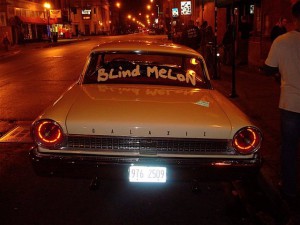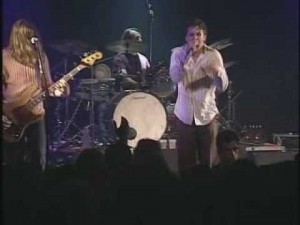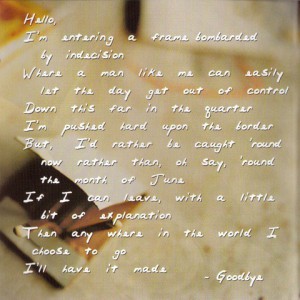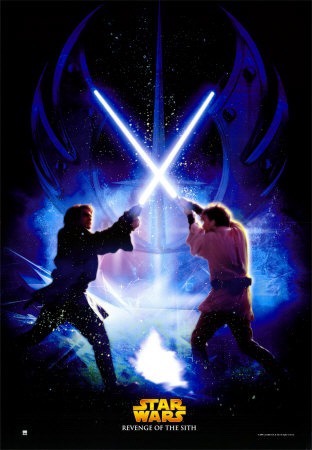So. Soup. If you’ve already heard it, you probably don’t need much explanation.
If you haven’t heard of it yet, then Soup was the second and final album by the collection of largely unsung geniuses known as Blind Melon and was released in 1995. As it would sadly turn out, the album was released just a couple of months before frontman Shannon Hoon’s death at the age of 28.
This overdue article is prompted by the fact that we recently had the 20th anniversary of the album’s release: and, though I’m a couple of months late, I wanted to make sure I made space to mark this anniversary and talk about this album.
The album was recorded in New Orleans; at Daniel Lanois’ Kingsway Studio, which was, according to legend, a haunted mansion deep in New Orleans’ French Quarter.
Whether it was or wasn’t ‘haunted’, there is, it has to be said, a haunting effect to much of the recorded music – particularly on songs like ‘St Andrews Fall’ and ‘Car Seat’ – so this seems rather fitting.
If you haven’t heard of Blind Melon or listened to their music, you really ought to rectify that. And though their self-titled debut record may be more popular, I maintain absolutely that Soup is their masterwork.
Guitarist Rogers Stevens, multi-instrumentalist Christopher Thorn, and rhythm section Glen Graham and Brad Smith, fused their talents to create a musical outfit of extraordinary abilities: and the final ingredient that created the maximum magic was the inimitable, slightly out-of-this-world and extraordinarily gifted frontman Shannon Hoon.
While in some ways the actual musicianship could be argued to have been better on the first album (1992’s Blind Melon), what was created on Soup was something far superior, and at times transcendent.
Through the course of the album we get bits of jazz, blues, New Orleans flavor, sixties style psychedelia, acoustic rock, hard rock. Just on this one record, there is, among other instruments, a flute, harmonica, banjo, accordion, mandolin, trumpet, tuba, and a kazoo; yet it’s all so seamlessly done and not gimmicky at all, but rather an organic, flowing process.
There are moments of imperfection, even one or two of what some reviewers might call misfires; but what they call misfires I would call micro-universes of endearing diversions, and any perceived imperfections are themselves full of character and are a vital part of a glorious whole.
This isn’t an album you can review track-by-track; it is, by design, a complete work, of which each track is a constituent part of an important whole. According to Shannon Hoon himself, they wanted the album to be that way, with the album as a whole more important than its individual pieces.
One of the best things about Soup at the time was that Blind Melon clearly wasn’t trying to play to any trend or be self-conscious; it’s an album that seems utterly ignorant of what was going on in music around it at the time, an album that existed in its own cosy, self-contained world, like a scene you might find in a snow-globe. And it is doubtful either that the band cared about ‘following up’ their first album the way other bands did or building their ‘career’.
Given what it turned out like and given that they were all entirely happy with it, it is also doubtful that they had any interest in the record’s commercial success.
If Blind Melon were ‘meant’ to be a huge act after that first album, the nature of Soup suggests they weren’t overly invested in fulfilling their expectation or prophecy. Soup is clearly the work of musicians who are only interested in following their creative impulses; this might’ve been why there was tension between band and executives and why the album wasn’t promoted very well.
For everything that could be said about Soup, every point that could be argued or countered, and for all its weirdness and awkwardness, I’m not sure there’s been a better album than this released by any guitar-based band in all the two decades since it came out.
It’s that good, in my estimation.

And every time I hear or remember the brilliant ‘Galaxie’, I am reminded immediately of how fickle and unbalanced the music business has always been, how fragile and finite life itself is, and most of all how special that band and its bright, life-giving frontman was.
The level of musicianship from each band member was genuinely amazing, much more so than any of Blind Melon’s contemporaries; there were lots of acts I liked, and quite a few I loved, and good music isn’t always about high levels of musicianship, but I always knew Blind Melon were on another level in those terms.
That was more the case on the first album than it was on the second; the second was more about soul, expression, feeling and sheer poetry, and was by far a better album than its predecessor.
But you could listen to just instrumental versions of a lot of Blind Melon songs and they would still be fascinating to listen to, which is not something than can be said for most bands. Just listen to the instruments and the interplay on a song like ‘Deserted’ from the first album, for example.
By the second album, most of the band probably didn’t feel any need to demonstrate their exceptionally high level of musical abilities any further and so could afford to scale down the compositions, musically speaking, even while expanding their repertoire in conceptual and thematic terms. Among the various, diverse, odd offerings – and they’re all very good tracks – there are three or four utterly glorious pieces of music and at least two compositions of utter genius.
The hidden track at the beginning of the album is a curious, disjointed way to begin a record; but it perfectly establishes the equally curious, disjointed and ultimately beautiful nature of the entire album; it includes an acoustic version of the glorious later track ‘New Life’, but patched together backwards. The odd, little ‘Hello, Goodbye’ intro baffled me the first time I ever heard it, but quickly made sense on repeated listens; it consists of a slow, lazy cacophony of brass instruments over which Shannon half speaks, half sings, his off-kilter words, before suddenly the thundering, driving riff of the first proper track, ‘Galaxie’ abruptly arrives and changes the direction completely.
It’s a gloriously disjointed, confused start to an album, which might put listeners off the first time.
Certainly the first time I heard it, I thought ‘what on earth are they doing?’ But soon enough you realise it’s actually the perfect start to Soup, particularly once you get right through to the album’s final track, the magnificently odd ‘Lemonade’, and you realise it links right back to that confused intro (both musically and lyrically). What was once an odd, uncertain mess has subsequently become something that feels like a fitting soundtrack to life itself, with Hoon’s philosophical, ponderous musings.
As for ‘Galaxie’, it’s a song that just bowls you over every time.
I was in love with this track for months when I first heard it, and I still am now, all these years later. It just flows and drives immaculately, with the main riff gorgeously supplemented by more intricate, almost Spannish sounding guitar, providing a perfect vehicle for Shannon’s never-failing vocals and compelling lyrics. ‘Galaxie’ is the heaviest-sounding track Blind Melon ever recorded, but such is Shannon Hoon’s irrepressibly hippy, optimistic nature that the chorus goes in a sweeter, more happy-sounding direction than you’d expect from the verse.
I also only recently saw the music video for ‘Galaxie’ a few months ago, having never seen it at the time, and it’s terrific. ‘Galaxie’ was about Hoon’s near-spiritual attachment to his first car, a 1964 Ford Galaxie.
The music video featured a cameo by Timothy Leary; though Hoon was reportedly on drugs while filming and his behaviour, according to legend, was very erratic, even unsettling the other band members.
‘Skinned’ might be the maddest song on the album. Opening with a kazoo and then bumping along with a banjo, the lyrics are about serial killer Ed Gein. It’s a rare sort of songwriter who can make a song silly and dark at the same time; but you’d almost think ‘Skinned’ was a comedy number if you didn’t listen to the lyrics (Hoon apparently had a fasciantion with serial killers). It’s a piece of gleeful madness, but like everything they did, catchy as hell.
‘Car Seat’, also called ‘God’s Presents’, is one of those works of utter genius I referred to earlier, and is an extraordinary and haunting piece of music.
The song is an account of Susan Smith, who murdered her children by driving her car into a lake. Told from the viewpoint of one of the sons she drowned, it is both lyrically and musically haunting. Musically, it’s a work of genius, with every instrument measured to perfection, playing its part but with tremendous subtlety and refrain. For a track that’s very short and only has two verses, it’s extraordinary how much it seems to build in stages, particularly at the beginning, where instruments come in sequentially, each adding a resonant layer and blending flawlessly with its counterparts, until eventually Hoon’s vocal arrives to complete the array.
And yet it’s all so subtle and quiet, as if it’s a song being conveyed to us in secret and no one else is supposed to know. At the end of the song, a poem is read, which was written by Blanche Bridge on February 11th, 1884 (and which is also tattooed on singer Shannon Hoon’s arm).
‘Car Seat’ is a thing of genius; one of those recordings that makes you wonder how they even conceived it. Suitably moody, given the theme, Shannon seems like he’s whispering the vocals at times, barely singing at all over the rich, layered and frankly gorgeous music that flows and flows like – appropriately enough – a steady-paced car ride. There are no choruses, just two verses and then the poem being recited via a telephone line so that it sounds like Shannon’s voice is coming in from another dimension.
That particular effect always haunted me all the more after his death. But for all of its production subtleties, its conceptual brilliance and compositional genius, what’s most striking about ‘Car Seat’ is how refrained it feels; as if the song isn’t even trying to call attention to itself but is almost hoping to slip by unnoticed.
Female singer Jena Kraus famously joins Shannon for vocals on ‘Mouthful of Cavities’. According to the band members, Jena, a fan of the band, kept coming up to them after their shows, claiming she could sing. Eventually they decided to give her a shot and were so astonished by her vocals that they invited her to contribute vocals to a track.
‘Mouthful of Cavities’ is a haunting piece of music, and Jena Kraus’s slightly out-of-sync backing vocal combines with Hoon’s lead beautifully.
When asked about “Mouthful of Cavities” the band’s guitarist, Rogers Stevens, was quoted as saying, “It’s probably about the convoluted nooks and crannies of Shannon’s brain.”
‘St Andrew’s Fall’ is another breathtaking song, which was inspired by the band witnessing a woman commit suicide by jumping off a building in Detroit. It’s a mellow, but almost upbeat song, with a very simple structure ditching all the high-level, complicated musicianship of the first album, and raised up by Shannon’s rich, lucid vocals.
After the second chorus, the band, along with all the stringed instruments, then speeds up more and more, more and more, until the drums are almost at the tempo of machine-gun fire – this abrupt tempo change being to represent the speed of the woman’s fatal descent as she drops from the building.

Then, after what seems like the climax, an acoustic guitar picks up again and there’s almost another song within the song, at a slow tempo, with syrupy strings joining in, and Shannon ending with some of his most evocative lyrics (the line “if I see you walking hand in hand in hand with a three-armed man” will stick in your mind for years afterward).
‘2 X 4’ is apparently about Hoon’s experience at a drug detox. It’s a song that is deceptively simple at first and something you could almost describe as a ‘Blind Melon style song’ (if there is such a thing); but then it suddenly goes in an entirely unexpected direction and we’re dealing with high-pitched, squealing guitar that sounds almost like a violin and is utterly hypnotic in its repetitive nature, which somehow sounds off-kilter and melodious at the same time.
‘New Life’, a song clearly and obviously about the birth of Shannon’s daughter, Nico Blue, might be the most patently beautiful recording I’ve ever heard from a rock band (certainly one of them, at the very least).
It is breathtakingly beautiful all the way through. I remember the first time I listened to it, sat there and watching the tape turning slowly in the player, I was listening to the first verse, listening to the vocal melody progression and the subtle transitions and thinking this was the most perfect thing ever; and I was predicting the melody transitions and inflection-changes, because that’s how perfect it was – so perfect that it was like I was the Divine God of Music and I was right there with them, divinely guiding or anticipating the notes and progressions.
Shannon’s vocals here are stunning and his lyrics, fittingly enough, are the most open, honest and plaintive they’ve ever been, as he bares his soul about how he feels to be on the brink of being a father.
At times it feels like he’s directing the words at his then-yet-to-be-born child and at other times like he’s trying to prepare himself for what fatherhood might mean.
Tonally and in terms of the feeling it evokes, the song is triumphal and even life-affirming. This song was beautiful enough when I first heard it; but two months later, when Shannon died just weeks after his daughter Nico had been born, ‘New Life’ became extraordinarily bittersweet and almost impossible to listen to.
But the song, and the perfectly captured recording, is just so beautiful it’s almost ridiculous.
Among some of the other tracks, ‘Vernie’ is a syrupy sweet ballad of the best kind (in that it’s just a really sweet, melodious song and never threatens to be cheesy), ‘Dump Truck’ is a bluesy, evocative thing with some beautifully layered, textured guitar work and a killer chorus, and ‘Toes Across the Floor’ is an absolutely first-rate piece of layered musical craftsmanship.
‘Toes Across the Floor’ may actually be the standout track from the first half of the record, with its brooding, contemplative lyrics and seamless, diverse instrumentation; the verse melody is so rich that it sounds like it could almost be from an ABBA song, while Hoon’s hoarse choruses display his most raspy, Janis Joplin-esque stretches. That song also starts with such a simple, straightforward composition, but evolves effortlessly into a funkier tempo change and then back again, again demonstrating the band’s extraordinary versatility.
And ‘Lemonade’, which closes the album, is one of the most fun, irreverent – yet focused – pieces of music you might ever hear from a guitar-based band.
Soaked in New Orleans flavors, with jazz, blues, rock all competing for prominence in the mix, it finishes off the album in perfect upbeat form. It is almost a confused montage of sound and style, but seems to somehow find perfect harmony within that.
It is, to be blunt, musical genius. And it also is a track that always puts a smile on your face and a spring in your step, which makes it a fitting note to end on – despite the album featuring some dark or deeply brooding work, themes and lyrics, one senses Hoon and co always wanted to finish on a cheerful, upbeat vibe.
‘Lemonade’ almost feels like a tribute to the love of music itself. Which is also, I think, Blind Melon summed up in microcosm.
Outside of jazz, I can’t think of any musical group that feels so much like a unit that simply loves music and finds true joy in it. I’m not sure any band in at least the last forty years seems to embody that vibe more than Blind Melon: it’s almost as if there’s a lack of any pretension, just pure love of the jam and an accompanying mastery of riding that jam to throw out these wonderful nuggets of musical gold.
_________________
Extraordinarily, Rolling Stone gave Soup only one-and-a-half stars; which just shows what music reviewers know.
I have some degree of insight into that, as I’ve spent a little time working at a music magazine/promoter and I recall plenty of occasions where people reviewing albums barely listened to those albums (and in some cases didn’t listen to them at all) but just fired out a quick ‘review’ because they were running against a deadline. I remember once reviewing a reggae album and being told there wasn’t enough time to listen to it, so I should just write a review based on the press release sent by the management.
Soup is certainly an album that takes a few listens all the way through before you can fully appreciate it; but even so, there’s more than enough music of immediate-quality on offer – ‘Galaxie’, ‘New Life’, ‘2 x 4’ – that reviewers at the time shouldn’t have realistically been able to rate it so lowly. Reviews, however, are unreliable yardsticks anyway, as every reviewer has their own tastes, in addition to the fact that most reviews are done on only one or two listens (if even that), and therefore are able to take no account for how a work ages or how it changes after repeated listens.
Another thing about Soup – and about Blind Melon in general – is that it sounds like it could belong to almost any era.

Timeless is one thing, but Soup could specifically have been released in the sixties or early seventies and not sounded out of place.
I’ve often considered that had Blind Melon been from the late sixties as part of the flower-power generation they would’ve been even bigger and more famous than they are and people would talk about them and about Hoon in the same breath as Hendrix and Morrison. I always had the impression the band, and Hoon in particular, probably felt like they belonged in that era anyway, and this was somewhat evoked when Blind Melon played the 1994 Woodstock and Hoon, more than anyone else on the bill, looked like his performance was being projected through time from the original 1969 Woodstock.
As it was, the early nineties, despite being the golden era for alternative/rock music (and what Kurt Cobain had predicted would be the “last great wave” of rock music), didn’t necessarily provide a natural habitat for an act like Blind Melon. Despite working with Pearl Jam’s early producer, despite being friends with the likes of Chris Cornell and Axl Rose, and despite the early, heavy MTV coverage, Blind Melon never quite seemed to ‘fit in’ and always seemed like something unique and apart.
So unique and apart in fact that the mainstream didn’t know how to handle them, especially once Soup had been released.
It’s as if they had been too difficult to pigeonhole and get a handle on, but at the same time too obviously good to completely ignore or dismiss. I mean a band of that much musical ability led by a frontman of Hoon’s powers couldn’t just be cast aside by the mainstream or by the industry, which was why there *was* a commercial breakthrough in the first instance.
But then it just sort of fizzled out in the second instance; to everyone but the core fans, of course.
Again, I still vividly remember going to my local music store to look for a tape copy of Soup when it came out.
I had never seen the Bee Girl video or heard any of the first album: I had simply heard a stripped-down acoustic version of ‘Galaxie’ on the BBC and was utterly beguiled by it, certain that I needed to get this album and hear more.
And I sat there, as a fifteen year-old, in my bedroom, in the dark, listening to the tape from start to finish. Each song was a revelation, and the tape-based white noise between each track was pregnant with possibilities and imagination.
By the end of it, I was mesmerised and knew that this album would be in my mindscape forever.

There’s maybe five or six other albums I’ve heard in my life that sit in that same special, immortal place. That’s what the story of Soup is/was for me as a fan: whether critics approved of it or not, whether sales were kind to it or not, is irrelevant. In fact, as I’ve noted before, the fact that it isn’t widely recognised and doesn’t have the mass appeal probably makes it feel all the more special: like a great secret you share with a limited section of people.
The fact, as noted, that Hoon tragically died just months after this album was released also added yet another layer of resonance to Soup.
To me, Blind Melon has always been a fitting demonstration of how little the industry cared for or understood real, genuine talent or genius; and that those occasions in which the industry did happen to stumble upon great artists (Cobain himself being a classic example) was simply fluke and something akin to that saying about the thousand monkeys with a thousand typewriters managing to eventually type out the works of Shakespeare.
The way Soup was handled encapsulates this perfectly.
It continued to bother me, however, in the years that followed, how many people hadn’t even heard of Hoon or Blind Melon.
I’m talking about people who were into their rock music, including music of that era, and would be into Pearl Jam or the Chili Peppers; but I would say, ‘hey, what do you think of Blind Melon?’ and I would get a blank look. Then I would lend someone one of the albums and they’d call me a day later, saying ‘oh my God, this is amazing!’ I remember playing one side of Soup to an ex-girlfriend: this was around 2002-ish, and she heard ‘New Life’ and said ‘fuck, how have I never heard of this band?’
Just as bothersome in some ways is the fact that a lot of people who do remember Blind Melon only remember the famous ‘Bee Girl’ video for ‘No Rain’ simply because they were MTV watchers in the nineties, but have never listened to Soup.
Not that the Bee Girl video isn’t cute as hell, but ‘No Rain’ wouldn’t even make my personal top ten Blind Melon songs.
With something as eclectic and unusual as Soup, Blind Melon kind of didn’t fit in very neatly to what was going on in music anymore.
Although their first album, released in 1992 in the middle of the so-called grunge and then alternative-music explosion, sold extremely well and brought them to public notice via MTV, things clearly didn’t pan out as record label and management people expected. Blind Melon was expected to be huge, by all accounts, and the success of that first album and in particular the massive exposure gained by MTV’s rotation of the ‘No Rain’ video reinforced this expectation, even a sense of inevitability.
At a time where groups like Pearl Jam, Alice in Chains and Soundgarden were achieving massive commercial success and having No.1 albums, Blind Melon – a band with immense talents and rich ‘cred’ – were surely expected to do something similar.
What happened instead was that their follow-up album, Soup, was so unorthodox, so rich and diverse musically, and so commercially awkward, that it pretty much tanked.
It didn’t do well commercially, there was very little coverage or promotion, and everyone seemed to miss it entirely (to their own detriment).
The other thing that has since occurred to me, however, is the possibility that the Soup album got overlooked simply because there was so much quality music and so many great albums being released at that time and it might’ve got lost in the mix. I was looking back at some of my old music magazines from around that time and looking at an old Kerrang from 1995, where they chose their best albums of 1995. Soup made the top twenty (it should’ve been No.1, but never mind); but also on the list were the final Alice in Chains album that Layne Staley sang on, the first Foo Fighters album, the extraordinarily epic and wonderful Melloncollie & the Infinite Sadness by Smashing Pumpkins, and the first Garbage album, and that’s just counting the albums that made their particular list.
It wasn’t like now, where we can count on two or three fingers the number of great albums released every year (if even as many as that); in those sorts of years – say from 1991 to around 1999 or thereabouts – it really was a different story, and you can almost understand an odd and awkward album like Soup getting overlooked or drowned out.
It’s no excuse; just a theory.
In reality, that second Blind Melon album was a work of breathtaking brilliance and genius. If pushed to name my favorite albums of all time, Soup would certainly make the top five.





After all these years and into the mid-forties of my life, I always re-read these words remembering a much different time. They hold my tender heart and remind me that there is beauty in defacing the norm and only the few can be seen by those who truly hear. I will forever honor and search for the souls like Shannon’s because that’s what the world needs most. Big hugs and much respect…your introspection is a gift.
Coming to this late. The dilapidated house full of us in college in the early 90’s were obsessed with Blind Melon’s first album. I was in first semester of med school when Shannon died, and never heard Soup. Well I went down that rabbit hole all weekend after a chance playlist selection while doing the damn dishes. Watched Live at the Metro concert and was just spellbound. And Soup— the song… has to be the Great Lost Track of the 90’s. I found myself sitting in my work parking lot crying to it, no idea why.
Blind Melon was star-crossed, and Shannon’s death was just the final strike. Watching their transcendent Woodstock ‘94 set, I feel like the guard was changing from the early Gen-Xers to the late ones and pre-Millenials, and you can see it happen that weekend. Shannon playfully said the audience could act “distorted” if they wanted for $135 a ticket. It was the kind of rueful thing my generation would say, and then keep on moving on and not getting down about it. Couples with him wearing his girlfriend’s dress and the stunning Soup rendition, the set was so much of what our youth culture was about. It should have been swimming in attendees’ heads all the next week. It was beautiful (I wasn’t there, YouTube took me there).
And then a couple dozen hours later, a new ethos took hold. Trippy vibes, soul, and somewhat intoxicated optimism and casual belief that all is acceptably well gave way to Fred Durst, Break Stuff, rage, and fire. That negativity bomb blasted the landscape of things as thoughtful as Soup. Albums like this one take a second listen before getting more out of them than you put in. The payoff of Break Stuff is easy, cheap, and immediate.
In a lot of ways we are still stuck in that post ‘94 moment three decades later.
Oops Break Stuff was at Woodstock 99. Nevermind that thesis…
Thanks for that, Tom. Yeah, the ‘negativity bomb’, as you describe it, is in full effect. I agree as well that ‘Soup’ the track is really special.
Another great Blind Melon piece, thx. Albums you named had more mainstream acceptance, yet nothing close to the depth and quality of BM first two. Not that it matters, but I mentioned in another comment after your other BM piece, Plant, Page and Jagger, the ONLY 90s band I’ve heard all of them praise is BM. Beyond the polite “they’re good” obligatory niceness re an opening band or whatever. Far more detailed and enthusiastic. It’s a damn shame we never got to see what the decades would bring. Health and happiness to you brother. Stay aerodynamic af.
Thanks so mush man. Sorry for the late response. Yeah, I absolutely adore this album. I’ve actually been looking for ages for the instrumental tracks to this album, because I’d love to hear those.
There is nothing I can express in words my feelings about Soup and Blind Melon in General. They were born with a predetermined destiny from way out beyond the stars. That proof is that their destiny was not only fulfilled then but continues to this day and will go on forever. They for sure belong in the Rock and Roll Hall of fame for their music and their extraordinary genius. They will always be my favorite band because they are the best with their type of predestiny.
Thanks for the comment, William: and for sharing your passion for BM.
Thank you for writing this. It has always frustrated me that more people haven’t seen how perfect and great this record is. The smiths are my favorite band and I put this album on my dessert island disc list.
Hey guys. I stumbled upon ‘Soup’ a few days ago. I listened to ‘No Rain’ and then a bunch of other BM songs started playing. Shame on me for only just discovering how f*cking brilliant they were in that Shannon era. I let each new song play, one after another, expecting that finally the quality would hit a wall…..well, it never did. I listened to ‘Soup’ front to back and was floored. Every song challenges you; every song surprises….they take twists and turns. Not to mention, the range is incredible. Shannon’s voice and perspective adds so much to the layers and variety of instruments. I can’t say enough….it amazes me how overlooked this band is. Up until a few days ago, I, myself, was one of those that overlooked them….even the music lover that I like to think I am. This album stands at the top of my rankings – not even just in the 90’s category.
That’s great, Matt – that you’ve stumbled on it, even this much time later. It’s not really that different to, say, being into Hendrix or The Doors twenty years after they were around, etc.
Most underrated band of the 90s, and one of the most underrated in rock history. Galaxie in particular is one of the most beautiful songs of their era. I am hoping at some point soon that nostalgia grants them their deserved attention. Glad I stumbled upon this article.
There’s an acoustic version of ‘Galaxie’ that I think they recorded at the BBC, and which I think is even more haunting than the album version.
You absolutely nailed everything about Blind Melon and Soup in particular with this brilliant article. I have just met the next person in a never ending line of musically inclined people from the era, that never heard of Blind Melon. ” Oh, the Bee Girl band, Right?”
“Yes”….(Sigh) I say yet again. And as always answer “That song was the worst thing that ever happened to the band”.
The emotion that is generated in me every time I listen to either one of their albums is almost indescribable. I love the first album, Deserted to this day is my go to. But the shear genius of Soup is, to quote Lisa Simpson helping Homer being a food critic, Transcendent.
I think its Time…. to educate another on Melon.
Great Lisa Simpson quote. Yeah, I’m stunned by how many people I know who haven’t listened to Blind Melon. And actually ‘Deserted’ is my go-to track on the first album too: the musicianship on that song is unbelievable.
I agree with everything you state in your fantastic article.
Soup is on my top 10 best albums of all time, and number 1 on my most overlooked list.
Number 2 on my overlooked list is “How it Feels to Be Something On”, by Sunny Day Real Estate. Give it a listen. I’d love to know what you think.
I’ve actually only heard one or two Sunny Day Real Estate songs. I definitely need to listen to more: thanks for the recommendation.
Thanks for the meticulous analysis – I love this album and put it on frequently. I’ve always thought it was an underrated work of fantastic musicianship and am glad that someone else sees that as well. Keep writing.
Thanks Jeff – one of my all-time favorite albums.
Oh my God you have just put in this article everything I have ever thought of Shannon Hoon and Blind Melon. You put the legacy and brilliance of what Melon was and is to this day. Fucking beautiful my friend. I was in New Orleans the day Shannon passed. Didn’t get to Tipitinas till later but the atmosphere was ethereal. I’d like to talk about it. But… and also didn’t find out about his death until the next day on the fucking NEWS in N. O. I’ve been talking to his niece Jamie for around 6 months and I’ve heard some wild awesome tails. I will always love Blind Melon and I just want to say thank you and great job on this beautiful journalistic piece. Much love
Thanks man, appreciate it – and love to hear from another BM fan and someone who appreciates the music.
Please do feel free to talk about your experience or thoughts, as I would love to hear it.